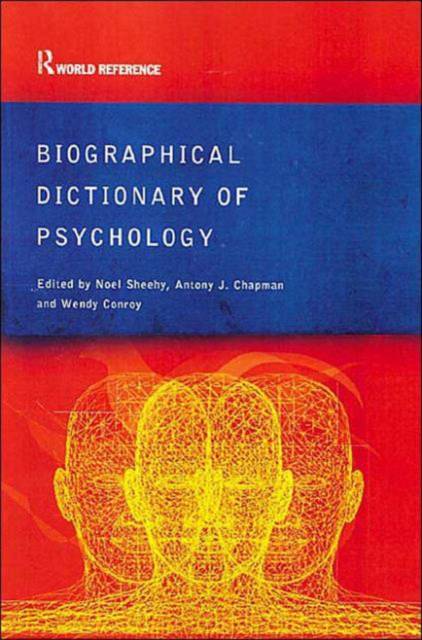
- Afhalen na 1 uur in een winkel met voorraad
- Gratis thuislevering in België vanaf € 30
- Ruim aanbod met 7 miljoen producten
- Afhalen na 1 uur in een winkel met voorraad
- Gratis thuislevering in België vanaf € 30
- Ruim aanbod met 7 miljoen producten
Zoeken
€ 99,45
+ 198 punten
Omschrijving
The Biographical Dictionary of Psychology provides biographical information and critical analysis of the influences and reception of over 500 people who have made a significant contribution to the field of psychology. Written by an international team of contributors, this volume charts the development of the practice of psychology worldwide from its emergence in the 1850s up to the present day. Biographies range from important historical figures to those who have had a more recent impact on the field, including: * Chris Argyris * Donald Broadbent * Kay Deaux * Leon Festinger * Sigmund Freud * Erich Fromm * Francis Galton * Eleanor Gibson * Doreen Kimur * Ulric Neisser * Jean Piaget * Herbert A. Simon * B.F. Skinner * Amos Tversky Entries are alphabetically organized and similarly structured for ease of access and allowing comparison of information. Introductory biographical details cover main fields of interest, nationality, principal appointments, honours, and places and dates of birth and death. This is followed by full bibliographic details of principal publications, as well as secondary and critical literature which provide a useful route into further research. Following on from there is an invaluable critical appraisal of the major achievements, influences and reception of the psychologists themselves. Thorough indexing allows the reader to access information by American Psychological Association subject division, key concepts, name and institution.
Specificaties
Betrokkenen
- Auteur(s):
- Uitgeverij:
Inhoud
- Aantal bladzijden:
- 698
- Taal:
- Engels
- Reeks:
Eigenschappen
- Productcode (EAN):
- 9780415285612
- Verschijningsdatum:
- 27/06/2002
- Uitvoering:
- Paperback
- Formaat:
- Trade paperback (VS)
- Afmetingen:
- 172 mm x 249 mm
- Gewicht:
- 1238 g

Alleen bij Standaard Boekhandel
+ 198 punten op je klantenkaart van Standaard Boekhandel
Beoordelingen
We publiceren alleen reviews die voldoen aan de voorwaarden voor reviews. Bekijk onze voorwaarden voor reviews.











